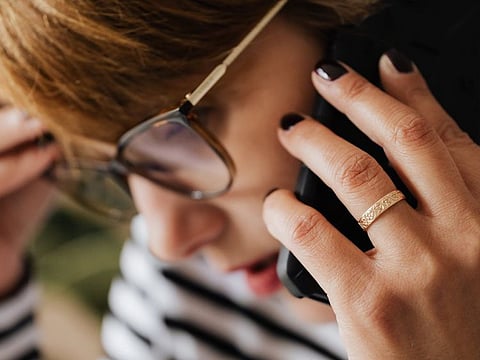Mukafih: How to identify drug addiction and seek help
UAE: Worried that a family member is taking drugs? Take this electronic test

Dubai: Do you or someone you love have a problem with substance abuse? The path to seeking help has been made easy in the UAE, with professional help only a phone call away because of the support mechanisms put in place by the UAE’s authorities.
The UAE has a zero-tolerance policy for recreational use of drugs, with UAE’s Public Prosecution as well as police authorities regularly raising awareness on the harmful effects of drug abuse as well as extending support to victims of drug abuse on how they can overcome their addiction and lead a normal, healthy life.
The UAE’s Ministry of Interior has also launched a special support line for families of drug abuse - Mukafih, available to all UAE residents. If you are struggling with an addiction, or if you know someone who you worry may be abusing drugs, here is all you need to know about the programme.
What is the Mukafih service?
The Mukafih service provides a starting point for families of individuals who are addicted, as well as the individuals themselves, to understand the negative effects of drug abuse. The toll-free number – 800 44 – allows callers to enquire about the types and dangers of drugs, learn how to identify signs of drug abuse, and provides guidance on how the process of rehabilitation can begin.
Stages of recovery
According to the UAE’s National Rehabilitation Centre, an early detection of addiction can go a long way in the successful rehabilitation process for a drug addict. The centre assists individuals seeking help, by taking them through various stages of recovery, which starts with detoxification – the elimination of withdrawal symptoms; rehabilitation programmes, which include psychological counselling, social services and life skills programmes and – finally – social support, which includes regular follow-ups and a relapse prevention programme.
Those seeking rehabilitation help are protected by law
Drug addiction is a complicated medical illness that requires professional medical and rehabilitation aide. According to the Mukafih support service, since drug abuse is considered unacceptable behvaiour punishable by law, abusers wrongfully believe that asking for help will lead them to be legally persecuted.
Federal law No. 14 of 1995 on the control of narcotics and psychotropic substances states clearly that any person asking for help in overcoming a drug addiction shall be exempted of any legal proceedings. The Federal Directorate General of Anti-narcotics will extend a helping hand and assist in the recovery process, irrespective of whether they were referred to by their family or contacted the department themselves.
Article 43 of Federal Law No. 14 of 1995 on the Countermeasures against Narcotic Drugs and Psychotropic Substances
No criminal proceedings shall be instituted against any abuser of narcotic drugs or psychotropic substances who voluntarily presents himself either to the Addiction Treatment Unit referred to in article 4 or to the Public Prosecution, requesting treatment. The person must remain in the Unit until the Committee referred to in article 4 decides on his or her release. The duration of treatment and rehabilitation may not extend three years. The provision of this article, however, shall not apply to anyone who possessed a narcotic drug which he did not hand over to the Unit or the Public Prosecution when he presented himself for treatment.
How to detect drug addictions within the family
Parents have also been urged to keenly observe any physical or behavioural changes in their child, as early detection of drug abuse can help immensely in the recovery process.
The Mukafih helpline provides a list of changes to physical appearance that parents should look out for, including:
1. Weight loss
2. Dreariness
3. Red eye
4. Lack of attention to their attire
5. Burn marks on the clothes from smoking hashish or marijuana
6. The presence of cigarette paper and cutting tools like scissors or knives with a dark, tarry substance on it.
7. As for heroin addicts, they tend to use needles to inject themselves, which leaves marks on their forearm. Thus, they avoid wearing short-sleeved clothes and carry with them a spoon with burn marks and a sheet of aluminum foil.
8. Also noticed Tramadaol and heroin addicts is their lack of balance and incoherent speech.
Behavioural traits and changes:
1. Addicts tend to prefer solitude and spending long periods of time in their rooms or in the laboratories.
2. They usually have trouble sleeping and irregularly attend school or show up for work, which reflects negatively on their school work or work performance.
3. They are also in constant need of cash, which drives them to borrow or steal, leading them to lie, make stories or claim to be sick in order to justify their actions.
4. Also noticeable is their mysterious and lonesome attitude as well as the cryptic words and signs they use when talking on the phone.
Is my child taking drugs?
Along with the changes stated above, the Mukafih service also provides parents to take an electronic test designed to detect drug abusers within the family. The test, which can be taken on the hotline, includes 30 questions answered through three options designed for parents to evaluate their child’s condition and verify whether their child is taking drugs or not. However,
How do I seek help?
You can call the Mukafih service on 800 44 for further assistance.
Sign up for the Daily Briefing
Get the latest news and updates straight to your inbox







